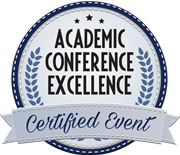
Bedoshruti Sadhukhan
ICLEI, South Asia, India
Title: Moving towards zero waste in South Asian cities
Biography
Biography: Bedoshruti Sadhukhan
Abstract
With increasing population, economic development and a growing consumerism, South Asian cities are facing a significant change in waste generation and its characteristics. Managing waste has always been the responsibility of local authorities (LAs), but the age-old practice of dumping waste is no longer sustainable. It is an inefficient way to use limited land resources, causes environmental pollution of soil and ground-water, social impacts through health issues of nearby communities and is an overall unsustainable practice leading to loss of valuable material resources. Obviously, LAs need to look for sustainable options of reducing, reusing and recycling waste. Integrating the existing system of informal waste-pickers in South Asia, who dominate recycling even before the waste enters the formal management system, can lead to significant environmental (material recovery), social (health) and economic (livelihood options) benefits. ICLEI South Asia conducted a project in 7 South Asian LAs, encouraging them to promote waste segregation and recycling, particularly through informal sector, to move towards a zero-waste community. Successful pilot projects in the cities, demonstrated how recycling helped to reduce waste going to landfills, produced resource materials including compost, and generated livelihood for waste-pickers in the city. Continuous engagement with local communities and waste pickers ensured the continuity of the pilots even beyond the life of the project. Critical to successful recycling is simultaneous segregation of waste at source, which relies heavily on the awareness levels of community, as well as well-established linkages with recycling units which will take up the segregated recyclables. Moving towards zero waste in cities needs collaboration with state and national government agencies so as to incorporate all types of waste, since LAs are only responsible for municipal waste, which technically excludes medical waste and hazardous waste, but which are major components of the waste coming out of cities.

